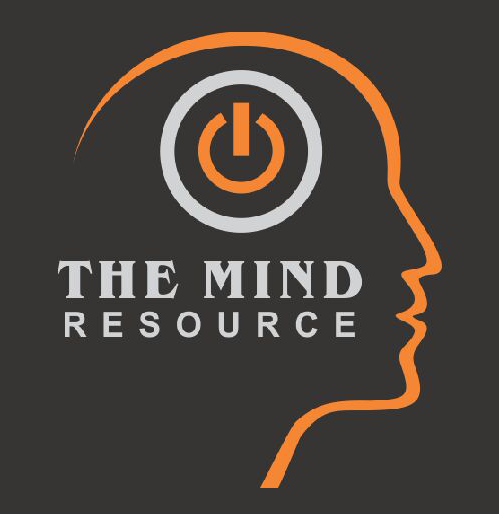Sleep: the brain’s reset button
by Emily Zacherle
What do you do to clear your mind? Maybe it’s yoga, running, hiking, baking or art class perhaps? Oddly enough, a good night’s sleep may literally clear your mind, but in a more technical sense. Last week we talked about the glymphatic system and the various processes, from a high level, that occur to clear out toxins, or waste, from the brain. While metabolism is known to slow down during sleep, certain parts of your brain actually become more active in comparison with wakeful hours. This is inclusive of the glymphatic system.
Research over the past 5 years has shown that the cellular structure of the brain actually changes while you sleep. The brain seems to enter an entirely different state. Space within the brain increases as much as 60 percent, allowing a rapid flow of cerebrospinal fluid. The two primary ‘flow controllers’ of the glymphatic system are glial cells and noradrenaline, a hormone. Glial cells control flow by shrinking or swelling, while noradrenaline increases brain blood flow, both of which increase space between cells in the brain. These controllers ultimately work to clear the waste that’s been developed during the day, setting it back to normal, similar to a reset button in a sense.
So what does this mean for health and disease? Not surprisingly, this is under simultaneous investigation. Researchers are looking into the relationship between sleep (glymphatic system) and a number of neurodegenerative diseases. One of the perhaps most investigated at this point is Alzheimer’s disease. Amyloid beta is increasingly recognized as a key player in the pathogenesis, or cause, of Alzheimer’s disease. In fact, it’s cleared from the brain faster during sleep than during wakeful hours in healthy individuals. Additionally, as we age the glymphatic system declines in activity and, as many of us know, the risk for developing Alzheimer’s increases with age. Ultimately together, it’s the double threat. It seems as though patients with this condition have a reduced capacity to clear waste from the brain and it’s thought that sleep, among other factors, may be an influential key player in the development of Alzheimer’s disease
Let’s switch gears and talk about traumatic brain injury (TBI), which primarily affects the military and athletes. Single TBI events and even moderate to severe trauma have the potential to lead to neurodegeneration (i.e. risk of premature dementia and Alzheimer’s disease). These brain injuries spark accumulation of beta amyloid proteins and other glymphatic system malfunctions, much like Alzheimer’s disease. Interestingly, sleep disruption is frequently followed by TBI. In turn, fragmented or disrupted sleep can worsen many symptoms following brain trauma. Given what we’ve talked about here in terms of the role sleep plays in clearing waste, and the importance of waste removal in preventing neurodegenerative diseases, this relationship isn’t too surprising.
So what happens if you’re sleep deprived or consistently have poor quality sleep, does this mean you’re going to develop some type of neurodegenerative condition? The answer is, we just don’t know. In reality it’s difficult to distinguish fact from coincidence or correlation in any disease, but there’s enough evidence in this case to assume a potential relationship. There’s also the issue of chicken vs. egg. Does the condition influence sleep, or does sleep influence the condition? Does it depend on the disease, or is it specific to the person? So, while there’s no definitive answer and a lot of unknowns at this point, these findings do provide some direction in identifying a pathway for delaying or preventing disease onset and an avenue for future treatment. So really what we’re saying is, get some quality rest! Unplug. Relax. Repeat.
The above information was adapted from the following websites, articles, and sources within each:
- National Institutes of Health. Brain may flush out toxins during sleep, 2013. Located at: https://www.nih.gov/news-events/news-releases/brain-may-flush-out-toxins-during-sleep. Accessed September 18, 2017.
- Xie L et al. Sleep drives metabolite clearance from the adult brain. Science, 2013;342(6156): 373-377. Located at: http://science.sciencemag.org/content/342/6156/373. Accessed September 18, 2017.
- Jessen NA et al. The glymphatic system: a beginner’s guide. Neurochemical Research, 2015;40(12): 2583-99. Located at: https://link.springer.com/article/10.1007/s11064-015-1581-6. Accessed September 18, 2017.
- Mendelshn AR et al. Sleep facilitates clearance of metabolites from the brain: glymphatic function in aging and neurodegenerative diseases. Rejuvination Research, 2013;16(6): 518-23. Located at: http://online.liebertpub.com/doi/abs/10.1089/rej.2013.1530. Accessed September 18, 2017.
- Sharma S and Kavuru M. Sleep and metabolism: an overview. International Journal of Endocrinology, 2010;2. Located at: https://www.ncbi.nlm.nih.gov/pmc/articles/PMC2929498/. Accessed September 18, 2017.
- Tarasoff-Conway JM et al. Clearance systems in the brain – implications for Alzheimer disease. Nature Reviews Neurology, 2015;11(8):457-70. Located at: https://www.ncbi.nlm.nih.gov/pmc/articles/PMC4694579/. Accessed September 18, 2017.

